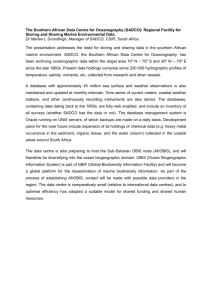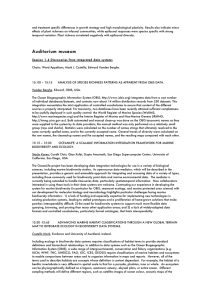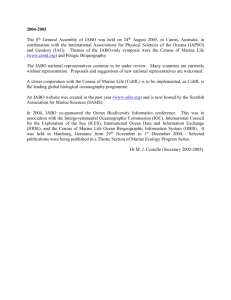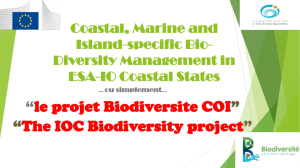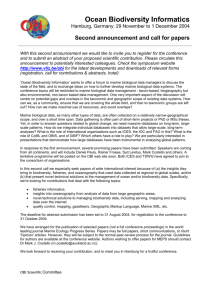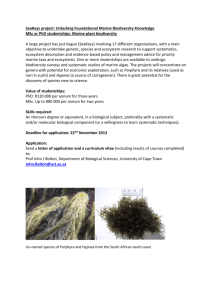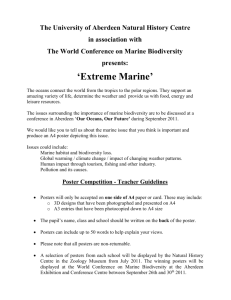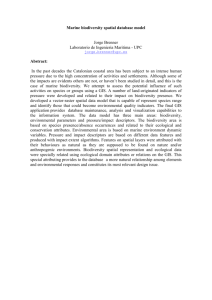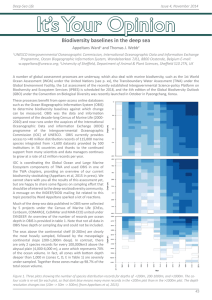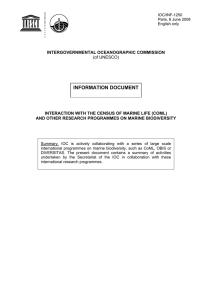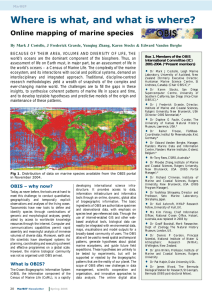installed and activated. This will allow Southern African Data Centre for
advertisement
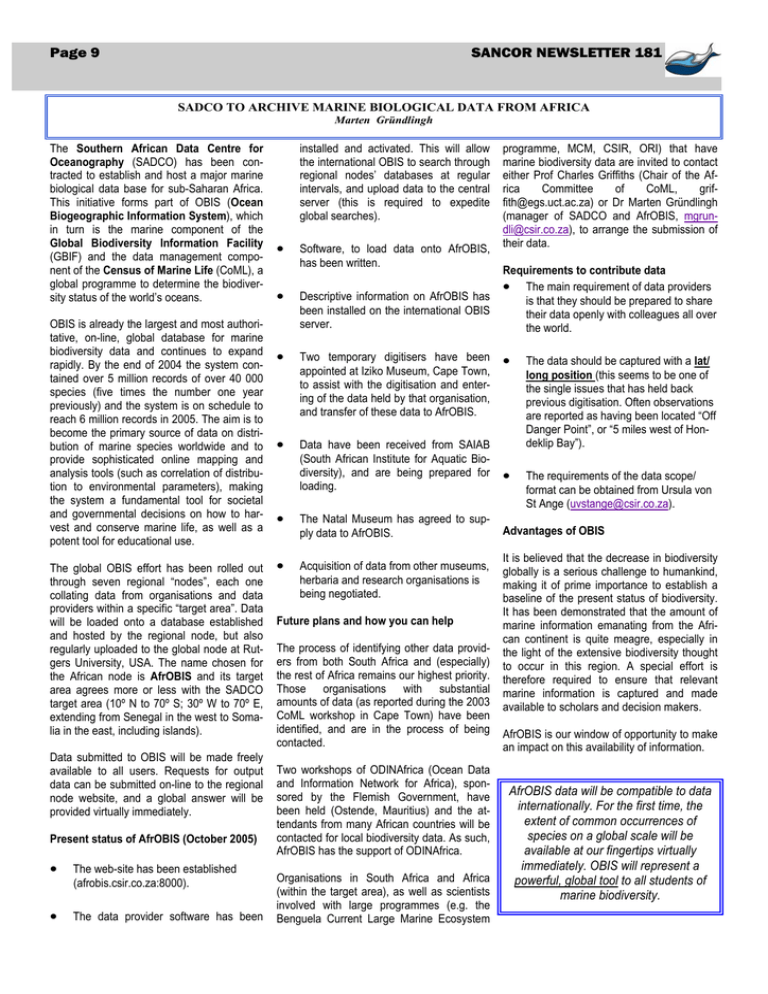
Page 9 SANCOR NEWSLETTER 181 SADCO TO ARCHIVE MARINE BIOLOGICAL DATA FROM AFRICA Marten Gründlingh The Southern African Data Centre for Oceanography (SADCO) has been contracted to establish and host a major marine biological data base for sub-Saharan Africa. This initiative forms part of OBIS (Ocean Biogeographic Information System), which in turn is the marine component of the Global Biodiversity Information Facility (GBIF) and the data management component of the Census of Marine Life (CoML), a global programme to determine the biodiversity status of the world’s oceans. OBIS is already the largest and most authoritative, on-line, global database for marine biodiversity data and continues to expand rapidly. By the end of 2004 the system contained over 5 million records of over 40 000 species (five times the number one year previously) and the system is on schedule to reach 6 million records in 2005. The aim is to become the primary source of data on distribution of marine species worldwide and to provide sophisticated online mapping and analysis tools (such as correlation of distribution to environmental parameters), making the system a fundamental tool for societal and governmental decisions on how to harvest and conserve marine life, as well as a potent tool for educational use. The global OBIS effort has been rolled out through seven regional “nodes”, each one collating data from organisations and data providers within a specific “target area”. Data will be loaded onto a database established and hosted by the regional node, but also regularly uploaded to the global node at Rutgers University, USA. The name chosen for the African node is AfrOBIS and its target area agrees more or less with the SADCO target area (10º N to 70º S; 30º W to 70º E, extending from Senegal in the west to Somalia in the east, including islands). Data submitted to OBIS will be made freely available to all users. Requests for output data can be submitted on-line to the regional node website, and a global answer will be provided virtually immediately. Present status of AfrOBIS (October 2005) • The web-site has been established (afrobis.csir.co.za:8000). • The data provider software has been installed and activated. This will allow the international OBIS to search through regional nodes’ databases at regular intervals, and upload data to the central server (this is required to expedite global searches). • • Software, to load data onto AfrOBIS, has been written. programme, MCM, CSIR, ORI) that have marine biodiversity data are invited to contact either Prof Charles Griffiths (Chair of the Africa Committee of CoML, griffith@egs.uct.ac.za) or Dr Marten Gründlingh (manager of SADCO and AfrOBIS, mgrundli@csir.co.za), to arrange the submission of their data. Requirements to contribute data • The main requirement of data providers Descriptive information on AfrOBIS has is that they should be prepared to share been installed on the international OBIS their data openly with colleagues all over server. the world. • Two temporary digitisers have been • appointed at Iziko Museum, Cape Town, to assist with the digitisation and entering of the data held by that organisation, and transfer of these data to AfrOBIS. • Data have been received from SAIAB (South African Institute for Aquatic Biodiversity), and are being prepared for • loading. The data should be captured with a lat/ long position (this seems to be one of the single issues that has held back previous digitisation. Often observations are reported as having been located “Off Danger Point”, or “5 miles west of Hondeklip Bay”). The requirements of the data scope/ format can be obtained from Ursula von St Ange (uvstange@csir.co.za). • The Natal Museum has agreed to supAdvantages of OBIS ply data to AfrOBIS. • Acquisition of data from other museums, herbaria and research organisations is being negotiated. Future plans and how you can help It is believed that the decrease in biodiversity globally is a serious challenge to humankind, making it of prime importance to establish a baseline of the present status of biodiversity. It has been demonstrated that the amount of marine information emanating from the African continent is quite meagre, especially in the light of the extensive biodiversity thought to occur in this region. A special effort is therefore required to ensure that relevant marine information is captured and made available to scholars and decision makers. The process of identifying other data providers from both South Africa and (especially) the rest of Africa remains our highest priority. Those organisations with substantial amounts of data (as reported during the 2003 CoML workshop in Cape Town) have been identified, and are in the process of being AfrOBIS is our window of opportunity to make contacted. an impact on this availability of information. Two workshops of ODINAfrica (Ocean Data and Information Network for Africa), sponsored by the Flemish Government, have been held (Ostende, Mauritius) and the attendants from many African countries will be contacted for local biodiversity data. As such, AfrOBIS has the support of ODINAfrica. Organisations in South Africa and Africa (within the target area), as well as scientists involved with large programmes (e.g. the Benguela Current Large Marine Ecosystem AfrOBIS data will be compatible to data internationally. For the first time, the extent of common occurrences of species on a global scale will be available at our fingertips virtually immediately. OBIS will represent a powerful, global tool to all students of marine biodiversity.
